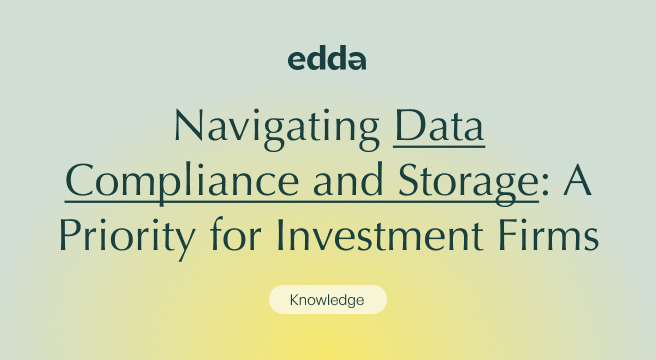In recent years, we’ve witnessed the emergence of unicorn companies—startups valued at over $1 billion. This phenomenon, once a rarity, challenges investors to reconsider their strategies.
According to PitchBook, the number of new unicorns has surged dramatically, with over 580 entities reaching this valuation milestone in 2021 alone. As of March 1, 2024, the global count of active unicorns stood at an unprecedented 1,369.
This surge in high-value startups, alongside the introduction of new valuation categories such as decacorns (startups valued over $10 billion) and dragons (valued over $12 billion, net of venture funding), marks a shift in the dynamics of venture capital (VC) investment.
To navigate the increasing competition, the heightened risks associated with inflated valuations, and the potential for outsized returns, VCS must refine their investment approaches, focusing on innovation, due diligence, and adaptability in their pursuit of the next generation of standout companies.
In this article, we unpack the current state of the market, the geographical distribution of unicorn companies, and the strategic implications of this new era. In addition, find out how Edda’s venture capital CRM software can help your firm manage high-valuation investments with precision.
The Acceleration of Unicorn Formations
The proliferation of unicorns has resulted in a growing appetite for investments in companies with the potential to disrupt markets, lead technological advancements, and offer groundbreaking solutions.
The expansion of venture capital funds, the globalization of the startup ecosystem, and the acceleration of digital transformation across sectors have all played a role in supporting the rapid valuation growth of these companies. Moreover, the venture capital model, which thrives on identifying and nurturing high-potential startups, has become increasingly refined, with investors actively seeking opportunities that promise exponential growth and substantial returns.
On one hand, the abundance of unicorns signifies a wealth of investment opportunities in companies poised for significant impact and growth. On the other, the increasing frequency of unicorn formations raises questions about market saturation, valuation bubbles, and the competitive intensity for securing stakes in promising startups.
Venture capitalists are compelled to navigate this with a strategic blend of rigor, foresight, and innovation. Understanding what contributes to the rapid rise of unicorns, and identifying the sectors and regions where these formations most occur, is essential for developing aligned and effective investment strategies.
Global Hotspots for Unicorn Activity
According to PitchBook, the United States remains the leader in unicorn activity, housing 702 companies, which constitutes 51.2% of the global total. This dominant position demonstrates the country’s continued influence as a central hub for technology and entrepreneurship, supported by a mature VC ecosystem, a large pool of talent, and a robust culture of innovation.
Following the United States, China ranks as the second-largest hotspot for unicorn companies, with 291 entities. This figure reflects China’s rapid ascent as a global leader in technology and innovation, supported by substantial government investment in startups, a massive domestic market, and an increasing number of venture capitalists willing to back ambitious projects.
India, the United Kingdom, and Germany are also key players, hosting 65, 49, and 25 unicorn companies, respectively. These numbers signify the growing influence of these countries and the diversification of innovation beyond the traditional Silicon Valley model. India’s burgeoning technology sector, the UK’s strong financial and creative industries, and Germany’s engineering and manufacturing prowess have all contributed to their respective positions in the unicorn rankings.
This global distribution of unicorns reveals several trends and implications for VCs:
- Emerging Markets & Innovation Hubs: Cities like Bangalore, London, and Berlin are increasingly recognized for their vibrant startup cultures, attracting both entrepreneurs and investors.
- Sectoral Diversity: Regions have developed unicorns in sectors that play to their inherent strengths and economic foundations, such as fintech in the UK and automotive tech in Germany.
- Cross-Border Investments: The global nature of unicorn activity encourages cross-border investments. This diversification can mitigate risks associated with market volatility, regulatory changes, and geopolitical tensions.
- Localized Strategies: Factors such as local market dynamics, regulatory environments, and cultural nuances play significant roles in shaping investment strategies.
- Collaborative Opportunities: Venture capitalists can leverage cross-border networks to gain insights, access new markets, and support portfolio companies in scaling globally.
As VCs seek to capitalize on the burgeoning opportunities presented by the spread of unicorn companies, even higher-tier companies are setting new standards for success.
Beyond Unicorns: Decacorns & Dragons
The scale and ambition of modern startups continue to escalate, driven by significant technological breakthroughs and expansive global markets. The startup ecosystem’s vocabulary is expanding as swiftly as its valuations, with terms like “decacorn” and “dragon” being coined to describe companies that far exceed the once-coveted $1 billion valuation mark.
Decacorns refer to startups valued at over $10 billion, while dragons are an even more exclusive category, reserved for private companies valued at $12 billion or more, net of venture funding.
The presence of these mega-valuation companies has implications for VCs:
- Market Dynamics & Investment Thresholds: Venture capitalists must now deploy larger amounts of capital to secure meaningful stakes in these companies, pushing the boundaries of traditional venture investment models.
- Risk & Reward: Investing in companies with valuations in the tens of billions introduces a different risk profile. The potential for significant returns exists, but so does the risk of substantial losses, especially if market conditions shift or if these companies fail to maintain their growth trajectories.
- Portfolio Strategy: The presence of a decacorn or dragon within a portfolio can dramatically alter the fund’s performance. However, this heavy reliance on a single entity’s success necessitates a balanced approach to portfolio construction, with a mix of high-risk, high-reward companies and more stable, lower-valuation investments.
- Valuation Scrutiny: As valuations soar, so does the scrutiny around the metrics and milestones used to justify these figures. Investors must conduct thorough due diligence, evaluating not just the market potential but also the fundamental business models, competitive advantages, and execution capabilities of these companies.
- Exit Strategies: The exit scenarios for decacorns and dragons are often more complex due to their size and market impact. Traditional IPOs, strategic acquisitions, or secondary market sales must be carefully planned to ensure liquidity events that meet the expectations of both founders and investors.
The Power Law
The power law in venture capital suggests that a small fraction of investments typically generates the majority of a fund’s returns. When dealing with unicorns, decacorns, and dragons, where investments carry higher stakes and the potential for significant returns, this becomes increasingly salient.
Deep due diligence is critical in this context. Understanding the market dynamics, competitive advantages, and scalability plans of these high-valuation startups is essential. This thorough evaluation helps in identifying which of these companies have the real potential to dominate markets and deliver substantial returns.
Active portfolio management is also a top priority. Providing strategic guidance and leveraging networks can help these high-potential companies achieve their ambitious growth targets. A long-term investment view is also vital since the significant returns from these high-valuation companies often take time to realize, requiring patience and a commitment to nurturing their growth.
Another important factor that requires careful attention is mitigating the inherent risks associated with high-valuation startups. Lastly, maintaining agility to adapt to changes in technology and market conditions will help VCs remain relevant and poised to benefit from the few investments that yield outsized returns.
Moving on, let’s delve into the next section of the article, focusing on the intricate interplay between market dynamics, startup valuations, and the strategic maneuvers venture capitalists must undertake in this high-stakes environment.
Market Dynamics & the Valuation Environment
These high-valuation startups serve as barometers for the broader investment climate, reflecting the confluence of investor sentiment, technological innovation, and economic forces.
The valuation of companies with unicorn status and beyond is significantly influenced by market dynamics. The influx of capital into the venture ecosystem, spurred by low-interest rates and the search for high yields, has led to increased valuations. This environment demands that VCs engage in even more rigorous valuation assessments, ensuring that their investments are backed by sound business fundamentals and not just market fervor.
Moreover, venture capital has become more competitive, with more players vying for a stake in potential unicorns, decacorns, and dragons. This competition drives up valuations and demands that VCs distinguish themselves through their expertise, networks, and value-added services to secure lucrative investment opportunities.
Technological advancements and shifts in consumer behavior further complicate valuation. VCs must remain adept at identifying startups that are not just at the forefront of technological innovation but also aligned with long-term market trends. This alignment is crucial to sustain high valuations and realize substantial returns.
The regulatory backdrop also shapes the valuation and growth prospects of high-valuation startups. Navigating regulatory challenges and leveraging favorable policies can be a significant determinant of a startup’s success trajectory.
Lastly, the broader economic context—encompassing factors like geopolitical tensions, trade policies, and macroeconomic trends—can have far-reaching effects on startup valuations and investment strategies. In this volatile environment, venture capitalists must remain vigilant, adapting their strategies to mitigate risks and capitalize on emerging opportunities.
For VCs, mastering this environment involves a delicate balance of strategic acumen, market insight, and adaptive prowess, ensuring their investments are poised for sustained growth amidst future market shifts.
Enhancing Success with Edda’s VC CRM
VCs don’t have to navigate the landscape of high-valuation investments alone. Edda is an essential tool for your venture capital tech stack. Its suite of features directly addresses the core needs of managing high-valuation startups, from deal flow to stakeholder engagement.
Edda CRM for private equity and venture capital simplifies deal pipeline management, allowing VCs to track and prioritize potential high-valuation investments efficiently. Its advanced analytics facilitate informed decision-making, essential for the due diligence process in evaluating startups with significant growth potential.
The platform’s relationship mapping capabilities are crucial for VCs looking to leverage their network for deal sourcing and due diligence. Edda CRM also streamlines operations, automating data updates and task synchronization, which enhances productivity and focuses on strategic investment decisions.
For venture capitalists navigating the intricacies of high-valuation investments, Edda CRM provides the tools necessary for success. Its focus on analytics, relationship management, and operational efficiency positions VCs to capitalize on opportunities in the dynamic venture capital market.
Considering Edda VC and private equity CRM tools for your firm? Get in touch to explore how it can streamline your investment process and bolster your strategic advantage in managing high-valuation startups.



